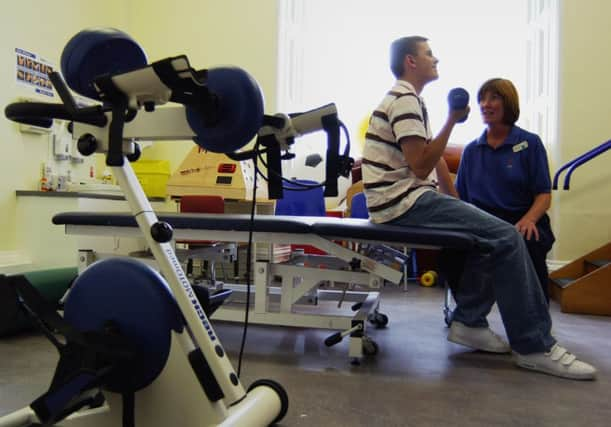Gene therapy ‘to aid those with cystic fibrosiss’


For the first time, a gene-altering treatment was shown to improve or stabilise the lung function of patients and lead to significant health gains.
The £3 million trial, involving 136 patients aged 12 and over, is seen as the curtain raiser for a much larger study next year.
Advertisement
Hide AdAdvertisement
Hide AdScientist say there is more work to be done but believe they are on track to deliver a therapy that can make a meaningful difference to patients’ lives.
Professor Eric Alton, from Imperial College London, who co-ordinated the trial in Edinburgh and London, said: “For the first time in the world, we have a significant benefit compared with placebo in cystic fibrosis patients.
“If the bigger study shows big benefits then it’s feasible that we’ll be able to offer this treatment to patients by the end of the decade.”
Cystic fibrosis (CF) is a rare but devastating inherited disease caused by a single defective gene that causes the lungs to secrete thick mucus. The airways become clogged up and vulnerable to recurrent life-threatening infections.
Lung damage caused by infections is responsible for 90 per cent of deaths of people with CF, who are not likely to live beyond the age of 35. Around 10,000 people in the UK suffer from the disease, which affects one in every 2,500 newborns.
Since the genetic basis of CF was discovered in 1989, scientists have been working on ways to replace the defective gene. But all attempts so far have been thwarted by the body’s protective mechanisms for clearing unwanted material out of the lungs and fighting off foreign invaders such as viruses, which are used to ferry corrective DNA into cells.
The new treatment does not employ viruses but fat globules, or liposomes, that carry the genetic material and are inhaled through a nebuliser. The globules fuse with fatty cell membrane walls and allow the DNA to slip into lung cells.
This type of gene therapy is not a single fix – the treatment has to be repeated at regular intervals as cells die and are replaced.
Advertisement
Hide AdAdvertisement
Hide AdThe trial compared the effects of inhaled gene therapy and a dummy “placebo” treatment on 136 patients with CF aged 12 and over.
The results, published in the Lancet Respiratory Medicine journal, showed that, at the end of the trial, lung function was 3.7 per cent better in patients who received the “active” treatment.
Participants with the worst lung function at the start of the study experienced a much greater 6.4 per cent gain compared with those in the placebo group.
Scientists said the “modest” improvements were still significant and a world first.